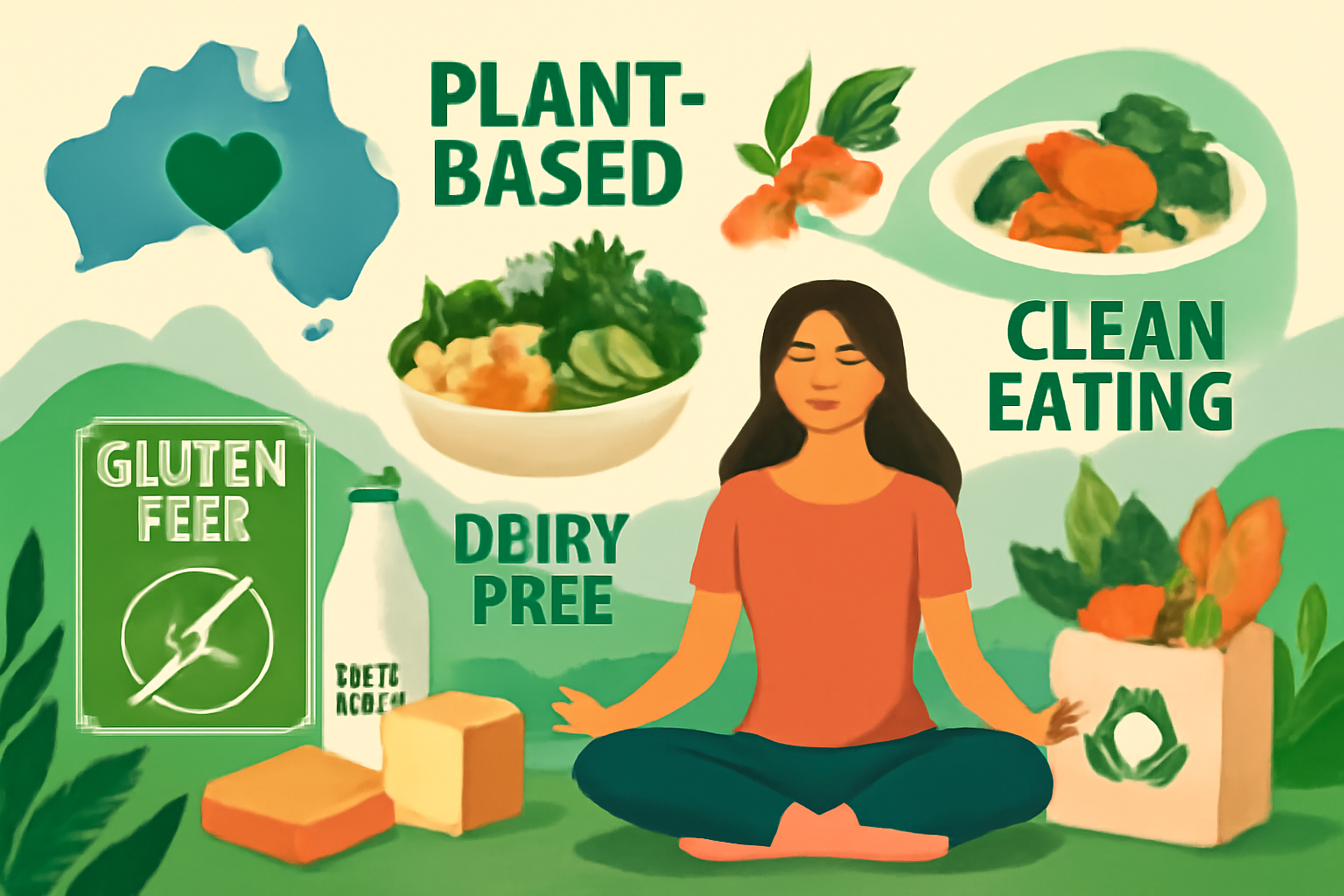Australia has always been known for its laid-back lifestyle, but in recent years, there has been a noticeable shift toward health-conscious eating and a more mindful approach to living. As people become more aware of the link between diet and overall well-being, the demand for nutritious, whole foods has surged. This change has sparked the rise of various healthy food trends across the country. From plant-based diets to superfoods, Australians are increasingly making choices that prioritize health, sustainability, and personal wellness.
One of the key drivers of the healthy food revolution in Australia is the growing awareness of plant-based diets. Veganism and vegetarianism have gained significant popularity as more Australians choose to cut down on animal products. The benefits of plant-based diets, including better heart health, lower cancer risks, and improved digestion, are now widely acknowledged. Vegan restaurants, cafes, and even fast food chains have popped up all around Australia, making it easier for people to adopt this lifestyle without sacrificing convenience or taste.
In addition to plant-based diets, there is also a growing emphasis on clean eating. Clean eating focuses on consuming whole, unprocessed foods such as fruits, vegetables, lean proteins, and whole grains. Many Australians have begun to embrace this lifestyle as they aim to reduce their intake of refined sugars, unhealthy fats, and artificial ingredients. Supermarkets now carry a wider range of organic, gluten-free, and non-GMO products, making clean eating more accessible to the mainstream population.
Another significant trend in Australian food culture is the use of superfoods. These nutrient-dense foods, such as chia seeds, quinoa, kale, and acai berries, have gained widespread recognition for their health benefits. Superfoods are believed to boost immunity, improve brain function, and provide sustained energy throughout the day. Australians are incorporating these foods into their daily meals in the form of smoothies, salads, bowls, and snacks. The growing popularity of these superfoods reflects the increasing desire to enhance one’s health with foods that are not only nutritious but also naturally packed with vitamins, minerals, and antioxidants.
Mindful eating is another aspect of the healthy food movement in Australia. This practice involves paying attention to hunger cues, appreciating the sensory experience of eating, and making conscious food choices that align with personal values. Many Australians are moving away from the traditional, fast-paced eating habits in favor of taking time to savor their meals and choose foods that nourish their bodies and minds. Mindful eating also ties in with the sustainability movement, as consumers are becoming more mindful of the environmental impact of their food choices. There is a growing demand for locally sourced, seasonal produce, and sustainably packaged goods.
Moreover, Australians are increasingly adopting gluten-free and dairy-free diets, driven by both health concerns and ethical considerations. Gluten sensitivity, celiac disease, and lactose intolerance have led many people to seek alternative options that support their digestive health. As a result, many restaurants and cafes now offer specialized menus catering to these dietary needs. The availability of gluten-free grains like rice, oats, and buckwheat, as well as plant-based dairy alternatives like almond milk and coconut yogurt, makes it easier than ever to follow these specialized diets.
The trend towards healthier eating is also closely linked to the overall wellness movement in Australia. As more Australians focus on physical and mental well-being, food choices are seen as an integral part of a balanced lifestyle. Fitness centers, yoga studios, and wellness retreats are now offering nutrition workshops and seminars, helping people make informed decisions about the food they consume. It is evident that healthy eating is no longer just a passing fad, but a long-term lifestyle change that reflects a broader cultural shift towards wellness in Australia.










